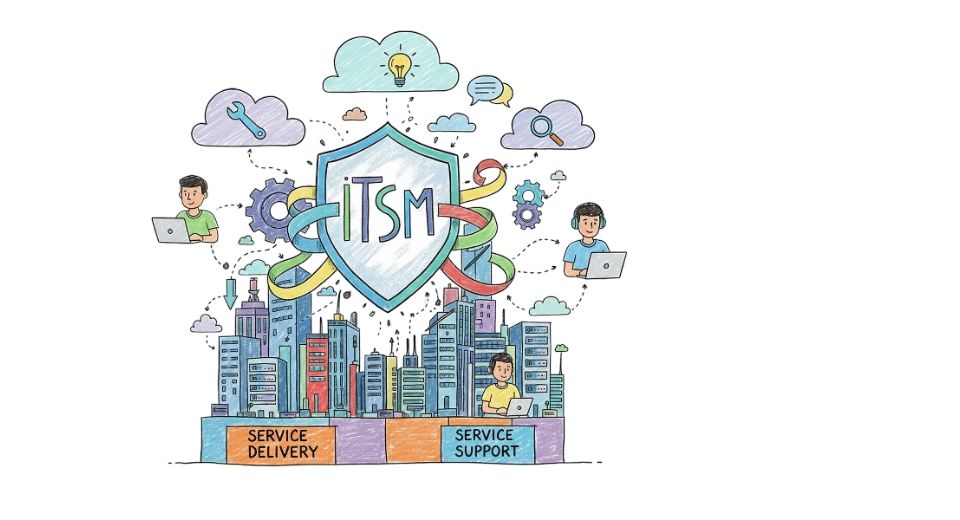
Sep 08, 2025

The newest report on the IT service management market offered by Metastat Insight introduces a comprehensive investigation of an industry that has sequentially transitioned from the role of a supporting function to a strategic imperative of contemporary organizations. While organizations face new challenges in the management of infrastructure, applications, and service delivery, the market has established itself as a framework allowing organizations to organize processes, simplify communication, and assure operational reliability. With increasing complexity in the digital environments, the service management is no longer a stand-alone tool but has merged into the center of organizational ecosystems. This shift has turned the market into not only a technology conversation but a topic that unifies business continuity, customer happiness, and operational flexibility. While noticing the development of this market, it is certain that expansion has not been limited to certain industries.
Global IT Service Management market is estimated to reach $14,105.72 million in 2025 with a CAGR of 15.9% from 2025 to 2032.
Various industries have increasingly incorporated practices that integrate service management into their core. Banks, medical care providers, telcos, and educational institutions all leverage formalized service models to impose order on complex operations. For these organizations, the payoffs go well beyond system upkeep; they provide a regular framework for communication, documentation, and quantifiable results that support both short-term operation and long-term planning. Service management models have become essential in responding to the challenges of multi-layered infrastructures that persist. Legacy infrastructures remain active on top of cloud platforms, hybrid environments, and new technologies.
The need to preserve coherence across layers has fortified the importance of structured service practices. Market vendors have, as a consequence, expanded capabilities to provide solutions that enable easy cohesion between traditional infrastructures and modern-day architectures. This has led organizations to switch from reactive to proactive practices, looking not just for incident resolution but prevention of interruption through increased planning and visibility. One big change seen in the market is the use of automation and artificial intelligence in service processes. Automated processes eliminate manual reliance, thus restricting errors and enhancing resolution time. Artificial intelligence brings in predictive capabilities, enabling systems to detect potential problems before they develop into major issues.
With such integration, organizations are moving towards cultures that focus on agility and autonomy. However, adoption has been anything but equal across geographies or sectors, with the levels of maturity varying greatly. While some markets depict advanced integration, others are still in stages of earlier adaptation, offering a dynamic scenery with diverse levels of opportunity. Collaboration has also emerged as a hallmark characteristic of this market. Contemporary organizations no longer restrict service management as an internal IT function. Cross-functional participation from operations, human resources, finance, and customer service departments ensures that all these groups are a part of the service experience. Such alignment ensures a complete strategy in which service delivery affects not just the internal workforce but also external participants who engage with organizational systems on a daily basis.
Vendors meeting these needs concentrate on building environments that combine communication, reporting, and access in a unified environment, doing away with silos that previously bounded effectiveness. The market competitive landscape illustrates how vendors differentiate by innovation, depth of service, and geographic adaptability. Solutions that have the ability to adapt geographically and across regulatory landscapes hold particular attractiveness for multinational companies. In contrast, smaller companies tend to be drawn toward cost-effective models that prioritize flexibility and scalability without exhausting resources. This variance in need has prompted solution providers to keep diverse portfolios, thereby making ITeasy for both large organizations and small-to-medium-sized organizations to access them. The end result is a market defined by its inclusivity and responsiveness to an expansive range of needs.
Training and skill development continue to play an important role in the market. Implementation of advanced platforms is facilitated by human capital for deployment, maintenance, and enhancement of service processes. Training programs, certifications, and knowledge transfer schemes have thus become part of effective service management. Companies that invest in ongoing skill acquisition tend to have fewer transition issues and greater returns from technology spending. Suppliers who incorporate learning blocks into their products commonly establish better customer relationships by illustrating commitment after product delivery. Sustainability and responsible use of resources have increasingly gained a place in discourse pertaining to the market.
As organizations look for cleaner operations, service management platforms are being created to measure energy usage, streamline workloads, and reduce wastage. By integrating sustainability metrics into service processes, the market not only deals with operational efficiency but also interfaces with larger corporate objectives of environmental sustainability. This relevance layer makes sure that service management remains relevant to worldwide strategies outside the technology agenda. Regional differences further highlight the intricacies of this market. Developed economies tend to focus on modernization and sophisticated feature integration, whereas developing markets focus on accessibility, cost savings, and core frameworks. All regions capture unique business landscapes influenced by regulatory policies, cultural attitudes, and technology preparedness. This tapestry guarantees that service management keeps shaping differently around the world, crafting a story that is universal in intent but different in practice.
As the sector evolves, the IT service management market report published by Metastat Insight offers an outlook that reflects not only current realities but also emerging trends that define the industry. The focus on integration, automation, collaboration, sustainability, and training is a reflection of a market that no longer exists as a purely technical support function but as part of organizational strategy. With different industries embracing customized solutions, regional differences influencing adoption, and technology transforming possibilities, the market situates itself as a lasting component of business transformation, bridging efficiency with resilience and innovation with stability.
Drop us an email at:
Call us on:
+1 214 613 5758
+91 73850 57479